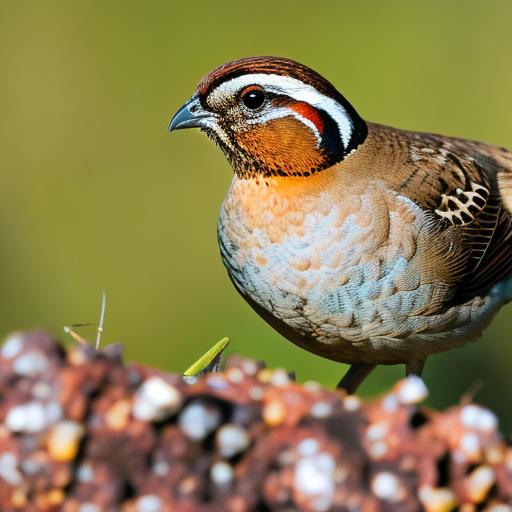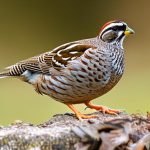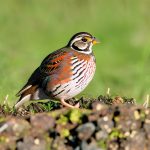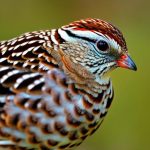When it comes to choosing the right quail species for your needs, there are several factors to consider. First and foremost, you’ll want to think about the purpose of raising quail. If you’re looking to raise quail for their eggs, then Coturnix quail, also known as Japanese quail, are a popular choice due to their high egg production and relatively small size. On the other hand, if you’re interested in raising quail for meat, then Bobwhite quail may be a better option as they are larger and have a more robust flavor.
Another important consideration when choosing a quail species is the climate in which you live. Different quail species have different temperature and humidity requirements, so it’s essential to select a species that is well-suited to your local climate. For example, if you live in a hot and dry climate, you may want to consider raising Gambel’s quail, which are well-adapted to arid environments. Conversely, if you live in a colder climate, you may want to opt for a species like the Northern Bobwhite, which can tolerate cooler temperatures.
In addition to considering the purpose and climate, it’s also important to think about the availability of the quail species in your area. Some species may be more readily available than others, so it’s a good idea to do some research and reach out to local breeders or suppliers to see what species are commonly available in your region. By taking these factors into account, you can make an informed decision and choose the right quail species that best suits your needs and circumstances.
Key Takeaways
- Choose the right quail species based on your needs and preferences, such as egg production, meat quality, or ornamental purposes.
- Create a perfect quail habitat by providing adequate space, shelter, and protection from predators.
- Provide a balanced diet for your quail, including a mix of commercial feed, grains, greens, and protein sources.
- Handle and socialize with your quail regularly to build trust and minimize stress.
- Ensure the health and wellness of your quail through regular check-ups, vaccinations, and proper hygiene practices.
- Understand quail behavior and communication to better care for and interact with your quail.
- Learn about quail breeding and reproduction to successfully raise and expand your quail flock.
Creating the Perfect Quail Habitat
Creating the perfect habitat for your quail is essential for their health and well-being. Quail are ground-dwelling birds that require ample space to move around, so it’s important to provide them with a spacious enclosure. A good rule of thumb is to allow at least 1 square foot of space per quail to ensure they have enough room to roam and forage. Additionally, the enclosure should be secure and predator-proof to protect the quail from potential threats.
Quail also require a habitat that provides them with opportunities for natural behaviors such as dust bathing and foraging. Providing a substrate such as sand or dirt for dust bathing, as well as access to grassy areas or forage boxes, can help fulfill these natural instincts. It’s also important to provide shelter and hiding spots within the enclosure to give the quail a sense of security and privacy.
Furthermore, the habitat should include appropriate food and water sources that are easily accessible to the quail. This can include feeders and waterers that are designed specifically for quail and placed at a height that is comfortable for them to reach. By creating a habitat that meets the physical and behavioral needs of quail, you can ensure that they thrive in their environment.
Providing a Balanced Diet for Your Quail
Providing a balanced diet is crucial for the health and well-being of your quail. Quail are omnivorous birds that require a diet rich in protein, vitamins, and minerals to support their growth and egg production. A good quality commercial quail feed is an excellent foundation for their diet, as it is formulated to meet their nutritional needs. Look for a feed that is specifically designed for quail and contains around 24-28% protein.
In addition to commercial feed, it’s important to supplement their diet with fresh foods such as fruits, vegetables, and greens. These can provide additional nutrients and variety to their diet. Some suitable options include leafy greens like spinach and kale, as well as fruits like berries and melons. It’s important to introduce these foods gradually and in moderation to avoid upsetting their digestive system.
Furthermore, providing access to grit and calcium supplements is essential for quail, especially for those that are laying eggs. Grit helps with digestion by grinding up food in their gizzards, while calcium is necessary for strong eggshells. Crushed oyster shells or limestone can be offered free-choice in a separate feeder to ensure they have access to these essential minerals. By offering a balanced diet that meets their nutritional requirements, you can help ensure that your quail remain healthy and productive.
Handling and Socializing with Your Quail
Handling and socializing with your quail is an important aspect of their care, as it can help them become more comfortable around humans and reduce stress. When handling quail, it’s important to do so gently and calmly to avoid causing them distress. It’s best to approach them slowly and confidently, using both hands to support their body securely.
In addition to handling, spending time around your quail can help them become more accustomed to human presence. Sitting near their enclosure and talking softly to them can help them become familiar with your voice and reduce fearfulness. Offering treats from your hand can also help build trust and positive associations with human interaction.
It’s important to note that while some quail may become more comfortable with handling and socialization, others may always remain skittish around humans. It’s essential to respect their individual personalities and comfort levels when interacting with them. By handling and socializing with your quail in a gentle and respectful manner, you can help them feel more at ease in their environment.
Health and Wellness Care for Your Quail
Maintaining the health and wellness of your quail is essential for their overall well-being. Regular health checks are important for monitoring their condition and catching any potential issues early on. This can include observing their behavior, checking for any signs of illness or injury, and monitoring their weight and egg production.
In addition to regular checks, providing a clean and sanitary environment is crucial for preventing disease and maintaining good health. This includes regularly cleaning their enclosure, providing fresh bedding, and ensuring that food and water sources are kept clean and free from contamination.
Furthermore, it’s important to be proactive about parasite control by regularly checking for external parasites such as mites or lice. Dusting the quail with poultry dust or using other appropriate treatments can help keep parasites at bay. Additionally, vaccination against common diseases such as Newcastle disease may be recommended depending on your location and local disease risks.
Lastly, it’s important to have a plan in place for addressing any health issues that may arise. This can include establishing a relationship with a veterinarian who is knowledgeable about poultry care and having a basic understanding of common health problems in quail. By prioritizing health and wellness care for your quail, you can help ensure that they lead long and healthy lives.
Understanding Quail Behavior and Communication
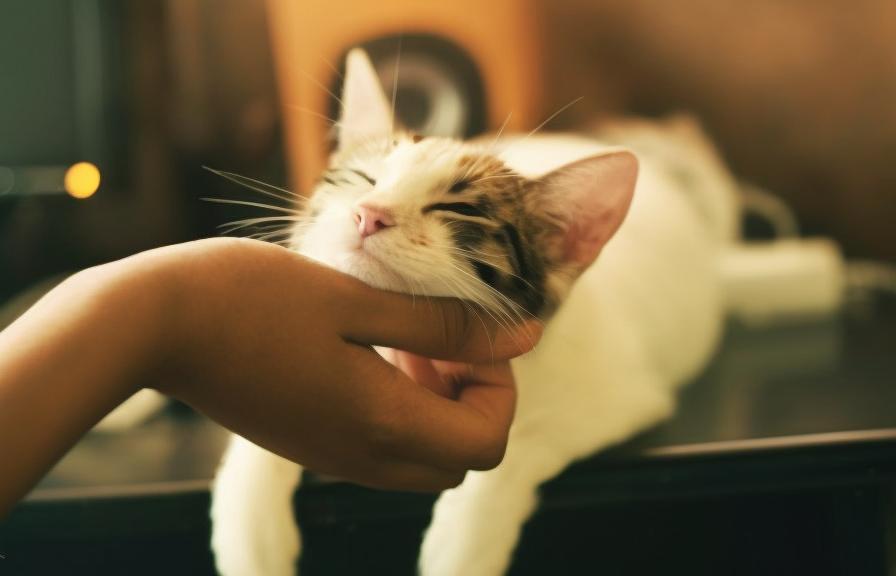
Understanding quail behavior and communication is essential for providing appropriate care and meeting their needs. Quail are social birds that communicate through various vocalizations and body language. They use different calls to communicate with each other, such as warning calls when they sense danger or mating calls during breeding season.
Quail also use body language to convey information about their mood and intentions. For example, they may puff up their feathers when feeling threatened or crouch down low when trying to hide or avoid conflict. Understanding these cues can help you interpret how your quail are feeling and respond accordingly.
It’s also important to recognize that quail have natural instincts and behaviors that are important for their well-being. For example, they have a strong instinct to form social hierarchies within their group, which can lead to pecking order behavior. Providing enough space, hiding spots, and resources can help minimize aggression within the group.
By taking the time to observe and understand quail behavior and communication, you can better meet their needs and provide an environment that supports their natural instincts.
Quail Breeding and Reproduction
Quail breeding and reproduction can be an exciting aspect of raising quail, whether for eggs or meat production. When it comes to breeding quail, it’s important to provide the right conditions to encourage successful mating and egg production. This includes ensuring that the quail have a suitable habitat with ample space, privacy for nesting, and appropriate lighting conditions.
Quail breeding typically occurs in the spring when daylight hours increase, triggering hormonal changes that stimulate mating behavior. Providing a consistent light cycle of around 14-16 hours of light per day can help encourage breeding behavior in your quail.
Once mating occurs, female quail will lay eggs in secluded nests within the habitat. It’s important to provide suitable nesting materials such as straw or shredded paper to encourage nesting behavior. Collecting eggs regularly can help prevent them from being damaged or eaten by other quail.
Incubating quail eggs can be done using an incubator or allowing broody hens to hatch the eggs naturally. Incubation typically takes around 17-18 days before the eggs hatch into adorable chicks.
Understanding the breeding and reproductive behaviors of quail can help you support successful breeding efforts and ensure the health and well-being of both parent birds and offspring.
Quail are known for their monogamous mating behavior, with pairs forming strong bonds during the breeding season. Understanding the timing of their breeding season, which typically occurs in the spring and summer months, can help you provide the appropriate nesting materials and environment for successful reproduction. Additionally, knowing the incubation period for quail eggs and the care required for the hatchlings can help you support the parent birds in raising healthy offspring. By understanding the breeding and reproductive behaviors of quail, you can create a supportive and nurturing environment that promotes successful breeding and ensures the overall welfare of the quail population.
If you’re considering keeping quails as pets, you may also be interested in learning about the benefits of renting a chicken coop. Poultry Wizard offers valuable insights into the advantages of renting a chicken coop, which can be a convenient and cost-effective option for those who want to raise chickens or quails without the commitment of building their own coop. Check out their article on renting a chicken coop to discover how this option could work for you.
FAQs
What is a quail?
A quail is a small ground-dwelling bird that is often kept as a pet or for its eggs and meat. There are many different species of quail, but the most commonly kept as pets are the Japanese quail and the Coturnix quail.
What do quails eat?
Quails are omnivores and their diet consists of a variety of foods including seeds, insects, fruits, and vegetables. In captivity, they can be fed a commercial game bird feed as well as fresh greens and mealworms.
How much space do quails need?
Quails require a minimum of 1 square foot of space per bird in their living area. It is important to provide them with enough space to move around and exercise.
What kind of housing do quails need?
Quails need a secure and well-ventilated enclosure that protects them from predators and the elements. The enclosure should also have a dry and clean area for them to lay eggs.
Do quails need companionship?
Quails are social birds and it is recommended to keep them in pairs or small groups. They thrive in the company of their own kind and can become stressed if kept alone.
Are quails noisy?
Quails are generally quiet birds, but they can make some noise, especially the males during the breeding season. However, their vocalizations are not as loud as those of other birds such as chickens.
Can quails be kept indoors?
Quails can be kept indoors, but it is important to provide them with enough space, proper ventilation, and a suitable substrate for scratching and dust bathing. Additionally, their enclosure should be cleaned regularly to prevent odors and maintain hygiene.
Do quails require any special care?
Quails require regular access to clean water, a balanced diet, and a clean living environment. They also need protection from predators and regular health check-ups to ensure their well-being.
Meet Walter, the feathered-friend fanatic of Florida! Nestled in the sunshine state, Walter struts through life with his feathered companions, clucking his way to happiness. With a coop that’s fancier than a five-star hotel, he’s the Don Juan of the chicken world. When he’s not teaching his hens to do the cha-cha, you’ll find him in a heated debate with his prized rooster, Sir Clucks-a-Lot. Walter’s poultry passion is no yolk; he’s the sunny-side-up guy you never knew you needed in your flock of friends!

